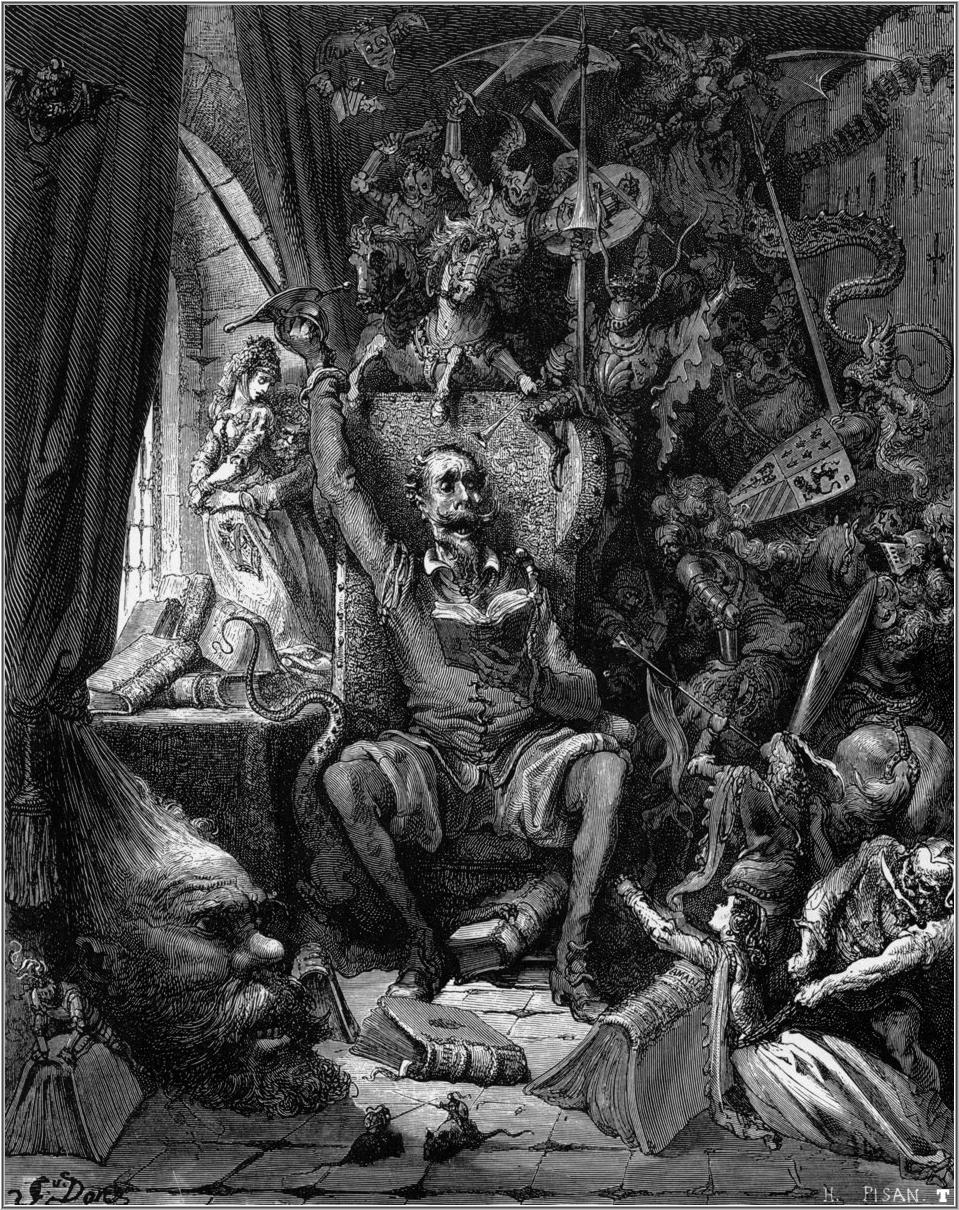(From my book Narrative Madness, which can be acquired at narrativemadness.com or on Amazon.)
The Name of the Book
“What is it called?” and “Who wrote it?” are the first questions we as readers ask when deciding to read a book. Easy. The answers are printed on the fat novel to my right: Don Quixote by Miguel de Cervantes. Just a title and a name. We can almost pass by without a thought. How much significance could there be in so few words?
Actually, the title is fraught with meaning. The name invokes an image: a gaunt knight on a skinny white horse charging windmills. Most readers are familiar with the idiom “tilting at windmills,” which means fighting an imaginary enemy or engaging in a hopeless battle. Many will also know the adjective “quixotic,” defined by The Oxford English Dictionary (OED) as “naively idealistic; unrealistic, impracticable.” So when I say I am engaged in the quixotic quest for reality, I admit I am tilting at windmills, battling an imaginary enemy: namely, reality.
Continue reading “In the Name of the Book, In the Name of Cervantes, Amen”
 It might seem that I am trying to demonstrate the unreality of reality. Many others have done so, including Taoists, Hindus and Buddhists. Jews, Christians and Muslims, following Plato’s lead, think God’s ideal realm is realer than this world. Religious people are not the only ones to call reality an illusion. Ludwig Wittgenstein said, “The limits of my language mean the limits of my world,” and Jacques Derrida suggested, “There is nothing outside the text.”
It might seem that I am trying to demonstrate the unreality of reality. Many others have done so, including Taoists, Hindus and Buddhists. Jews, Christians and Muslims, following Plato’s lead, think God’s ideal realm is realer than this world. Religious people are not the only ones to call reality an illusion. Ludwig Wittgenstein said, “The limits of my language mean the limits of my world,” and Jacques Derrida suggested, “There is nothing outside the text.”